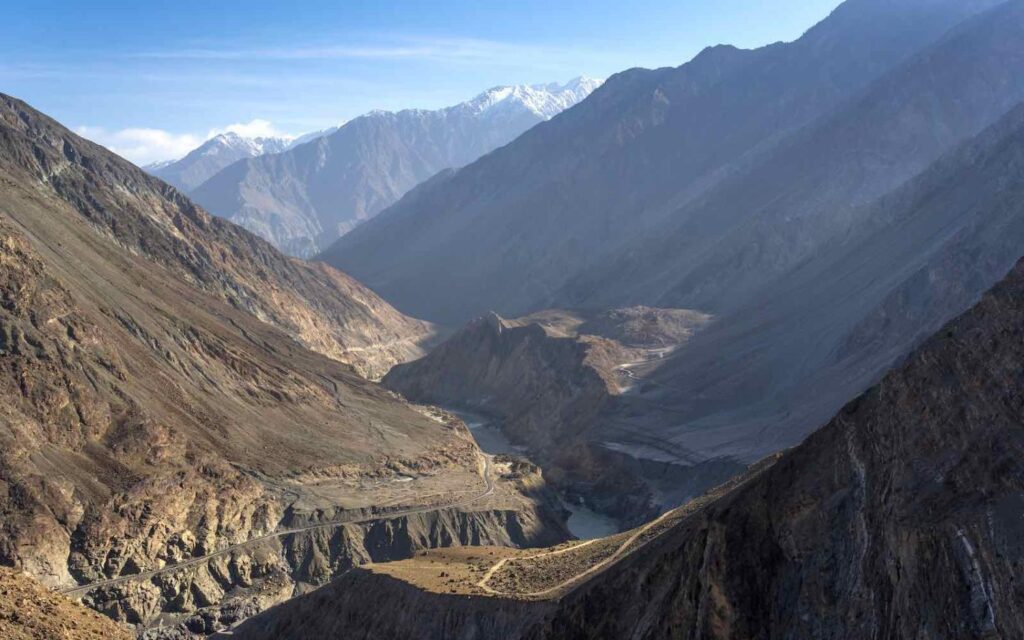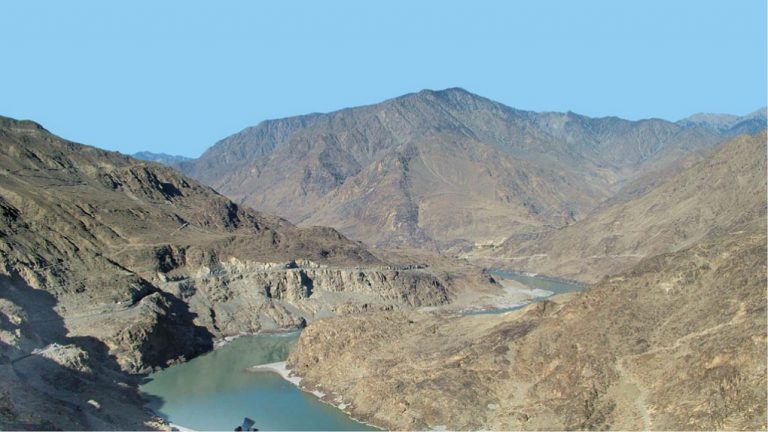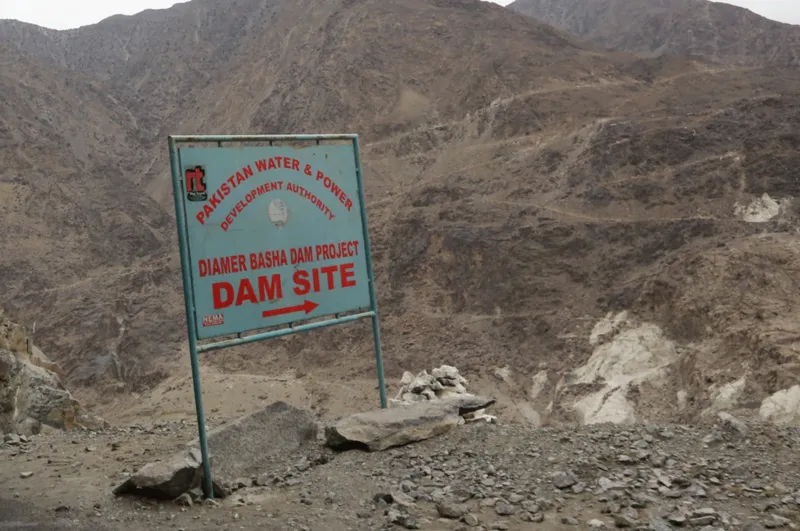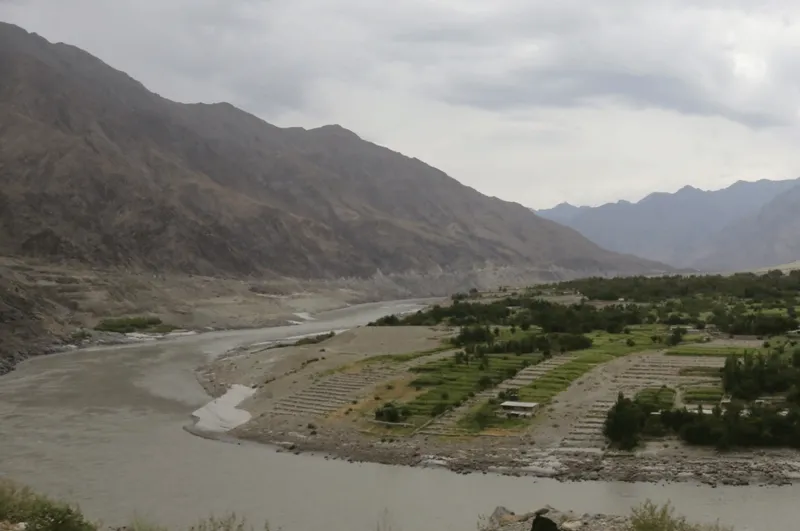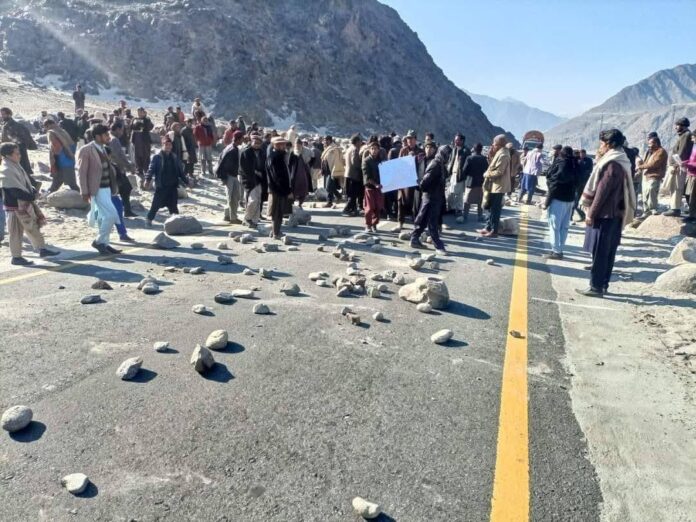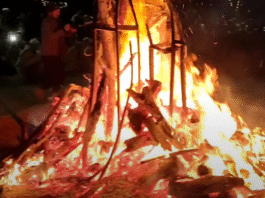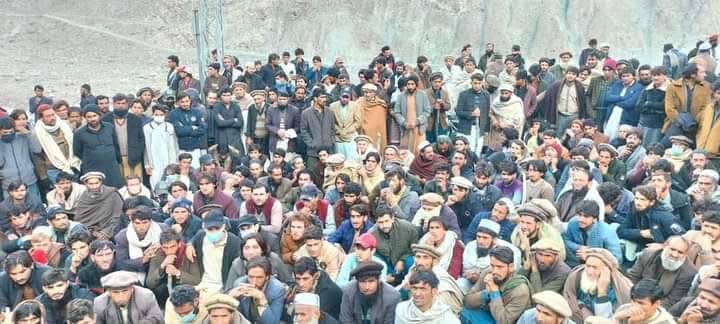
On December 9th, a significant development unfolded as the affectees of the Diamer Bhasha Dam in Gilgit-Baltistan took a decisive stand by blocking the Karakoram Highway (KKH). This strategic move was a result of their growing frustration over the delay in receiving promised compensation for relinquishing their lands to make way for the construction of the dam.
The protesters, composed of locals directly impacted by the dam project, were steadfast in their demand for the long-overdue payments associated with the Chula (stove) Package. This package was designed to provide financial aid to individuals before they vacated their homes, which had been acquired for the construction of the dam.
As the blockade on the Karakoram Highway intensified, the consequences rippled outwards, causing a major disruption in the region’s transportation network. Tourists traveling to and from Gilgit Baltistan and Islamabad found themselves stranded on both sides of the blocked road, highlighting the immediate and tangible effects of the protest action.
The standoff on the Karakoram Highway not only symbolized the grievances of the affected communities but also underscored the broader issues of compensation and resettlement that often accompany large-scale infrastructure projects. The impasse served as a stark reminder of the complexities and challenges inherent in balancing the developmental needs of a region with the rights and concerns of its inhabitants.
Local authorities and project stakeholders were urged to engage in dialogue with the protesters to address their demands and find a mutually agreeable resolution. The incident also drew attention to the need for transparent and timely compensation mechanisms in projects of such magnitude, emphasizing the importance of upholding the rights and welfare of those directly impacted by development initiatives.
Map of the Diamer Basha Dam Site
Displaced Villages
Ecological Sites Before Construction
